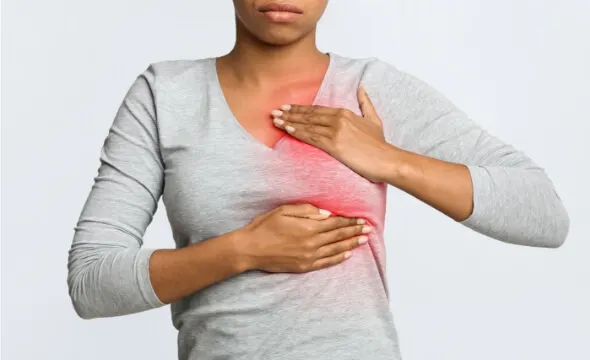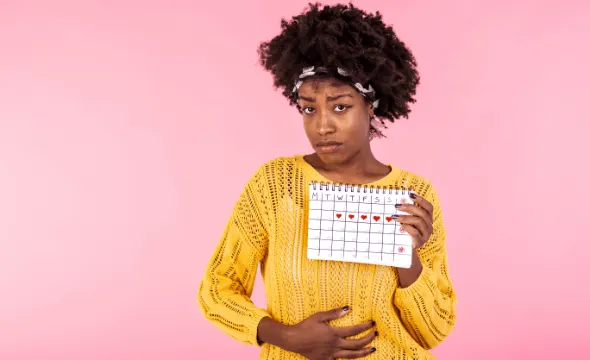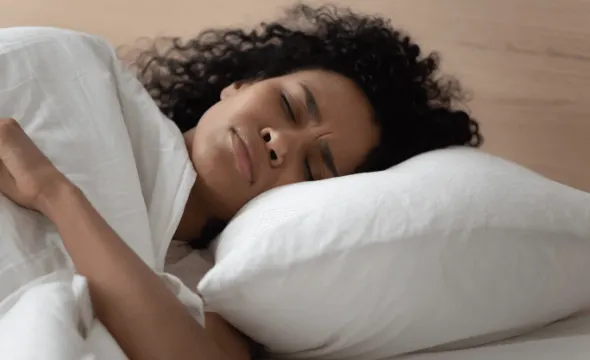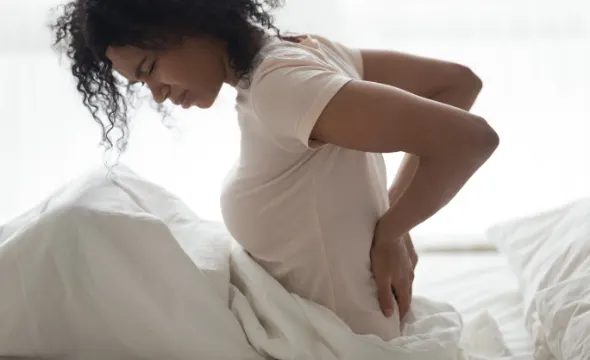Painful Breasts Before and After Period: Causes and Treatment
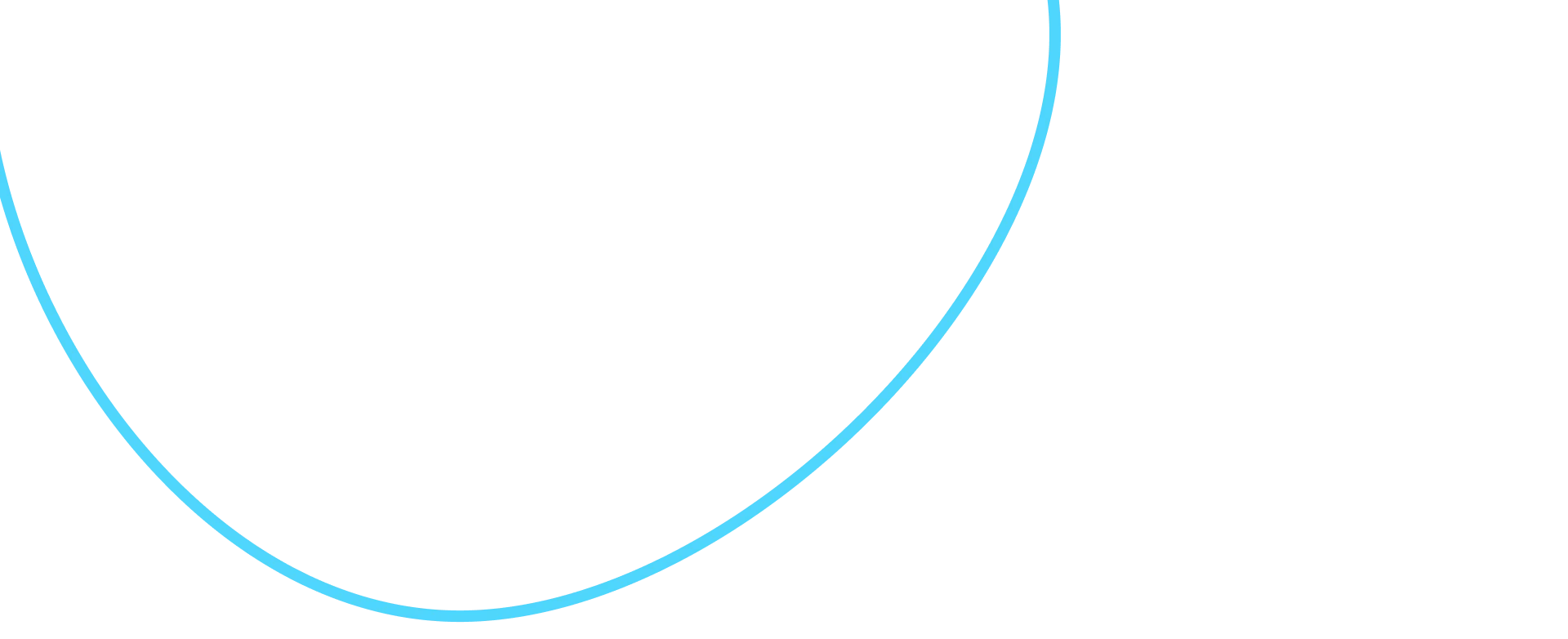
Do you experience breast pain in the days leading up to your periods? Or are your breasts still sore after your period ends? If so, it's an indication of cyclic breast pain, also known as mastalgia. It's a common concern faced by premenopausal women.
But have you ever wondered what causes breast pain before or after a period and what's normal? Well, majorly the cause lies behind your menstrual cycle. To get a deeper understanding of the subject at hand, we've deciphered the link between breast pain and periods. Alongside, the causes and remedies to relieve it.
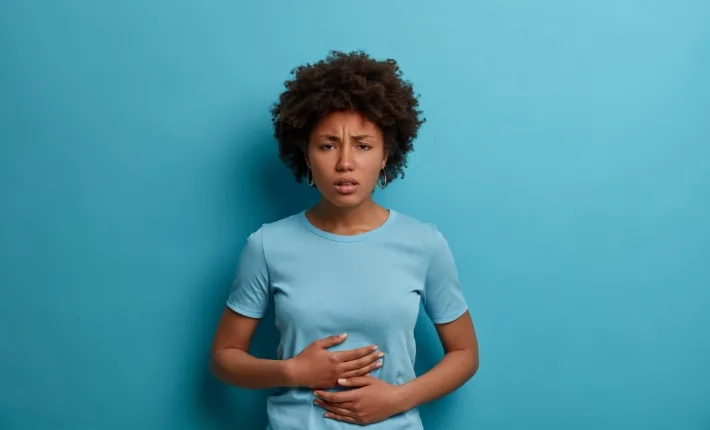

How Is Breast Pain Linked To Periods?
During your menstrual cycle, hormones like estrogen and progesterone start to increase in your body. Estrogen enlarges the breast ducts and progesterone swells up the milk glands. These changes in your breast tissues leads to breast pain. It occurs primarily in your luteal phase occurring after ovulation and before periods.

Broadly speaking, there are two types of breast pain - cyclic and non-cyclic.
Broadly speaking, there are two types of breast pain - cyclic and non-cyclic. The former one is associated with periods as it occurs at regular intervals, wherein you experience sore breasts before periods. But as your estrogen levels keep fluctuating throughout your cycle, you might experience tender breasts after periods too. Coming to the latter type of breast pain, it may not be constant or appearing at fixed intervals. Non-cyclic breast pain is typically not linked to the menstrual cycle and pain is usually induced in only one breast.
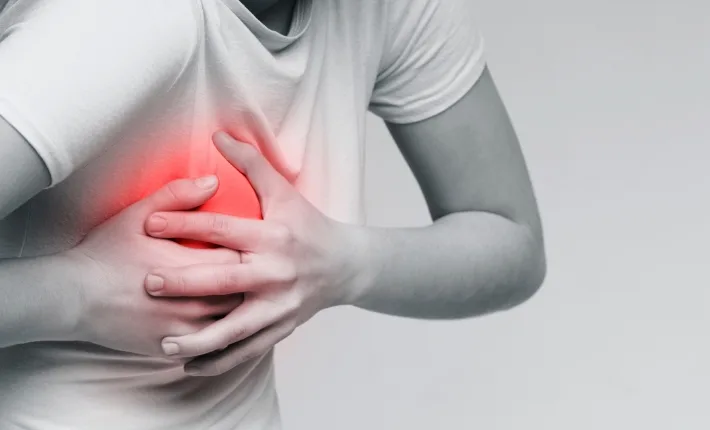

Symptoms Of Cyclic Breast Pain
The following symptoms can help you know whether you are dealing with cyclic breast pain or not:
1. Sore breasts before period
2. Pain which appears at regular intervals
3. Pain that begins 5 - 10 days prior to your periods
4. Swelling in breasts
5. Pain in both breasts, mostly in the upper and outer area
6. Pain that radiates towards your underarms
7. The intensity of pain increases as your periods come close-by
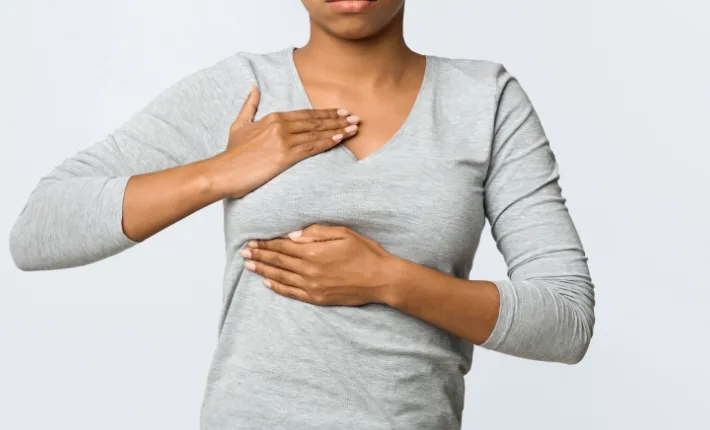

Causes of breast pain during period
Breast pain during periods is caused due to two major reasons - hormonal imbalance and cysts. Let's look at each in detail:
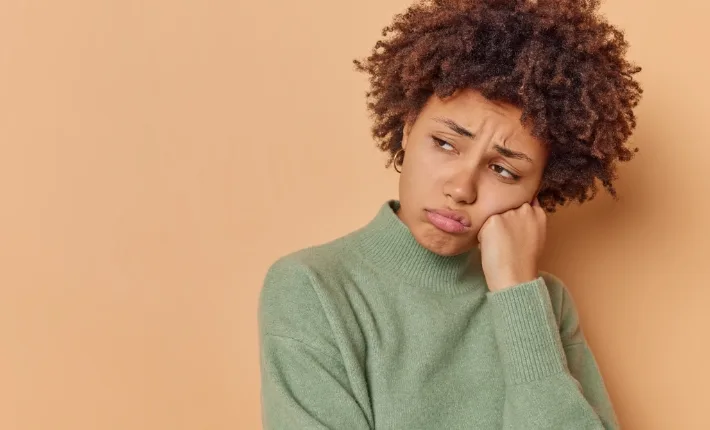

Hormonal imbalance
As discussed earlier, while menstruating, your hormones keep fluctuating or perhaps keep rising. This causes your breast to swell up, feel lumpy or painful. In order to make sure that breast pain before periods is caused by hormonal imbalance, it's best to keep a note of when you experience the pain. In two to three months, you will be able to see a pattern as you experience sore nipples before periods.
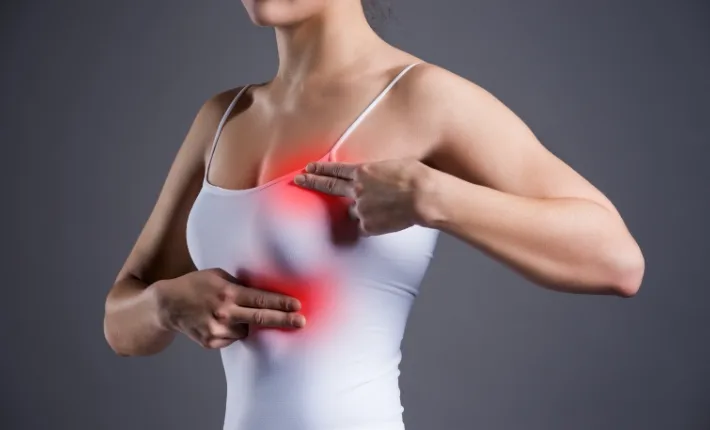

Cysts
A breast cyst is another cause of experiencing tender breasts. Popularly known as fibrocystic breasts, is a result of breast tissue getting replaced by fat during breast development stages. These cysts aren't harmful or painful either. Most of the time, they go unnoticed. But as they grow in size, some women experience pain from these lumps prior to their periods. In case you spot any kind of lumps on your breasts, you must consult with your doctor immediately.


Remedies To Relieve Breast Pain
Dealing with breast pain before or after periods can be a little tiresome. But worry not, here are a few tips that would help you ease the pain:
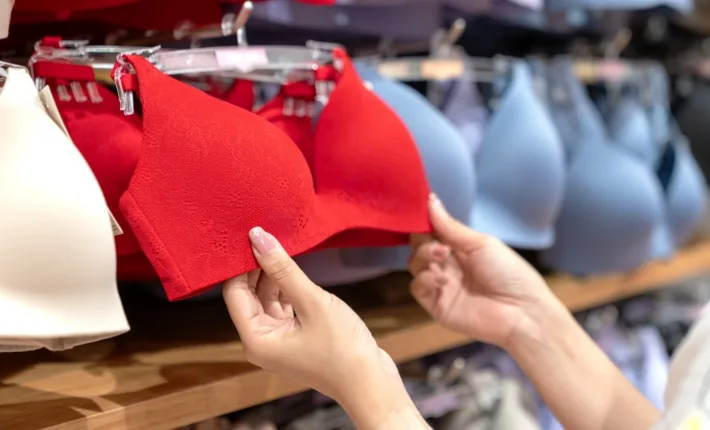

Wear a well-fitted bra
A well-fitted bra can help you reduce the bounce of breast tissue and thereby alleviate the pain. This is primarily important for women with large breasts. Likewise, while sleeping you should opt for soft bras. It can keep your breast pain to a minimum.
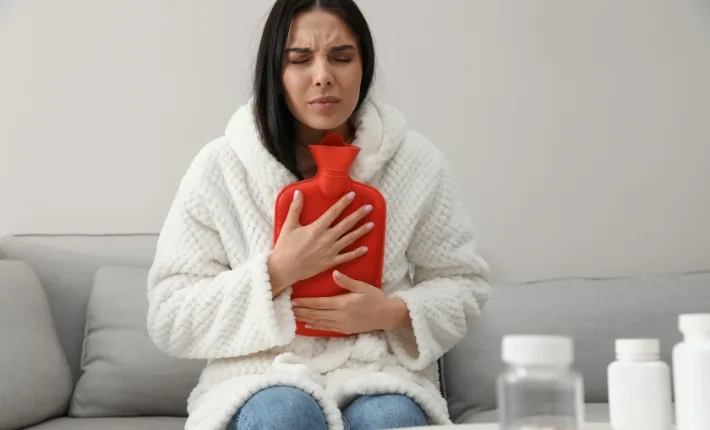

Hot or cold press

Apply a hot or cold pack over the affected area.
Apply a hot or cold pack over the affected area. But make sure you wrap the pack in a towel and then apply it over your breasts. You can also try gently massaging the painful area.
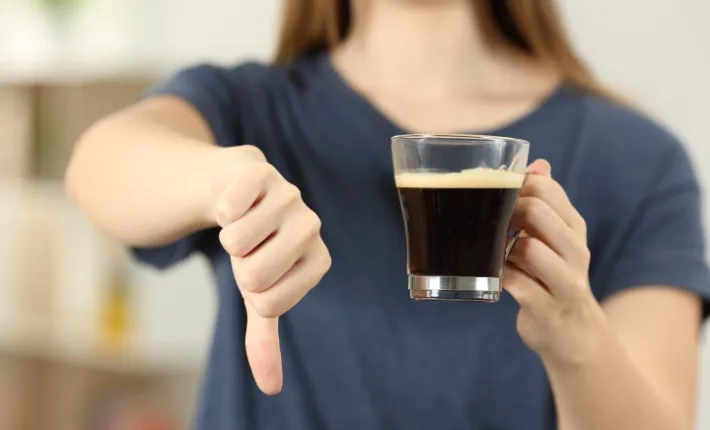

Reduce the intake of caffeine and salt
Cutting out salt can help you with water retention in your body. On the other hand, cutting caffeine from your diet can help you as well.
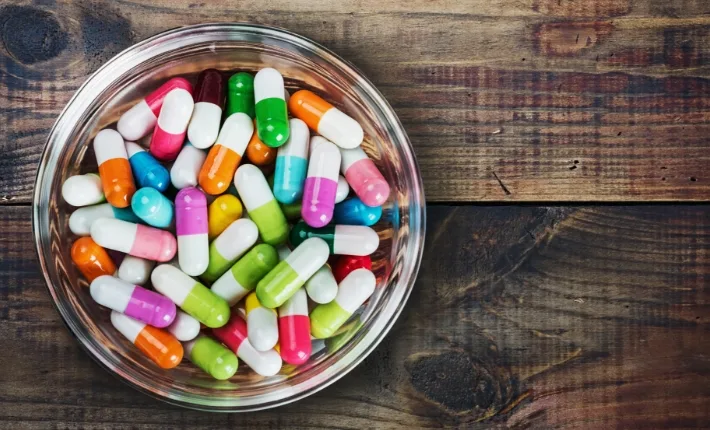

Try out supplements
Supplements like evening primrose oil, vitamin E, or vitamin B6 have proved to be helpful for a few women. Primrose oil may shift the balance of fatty acids in your cells, thereby reducing breast pain. But make sure to consult your doctor before taking supplements.
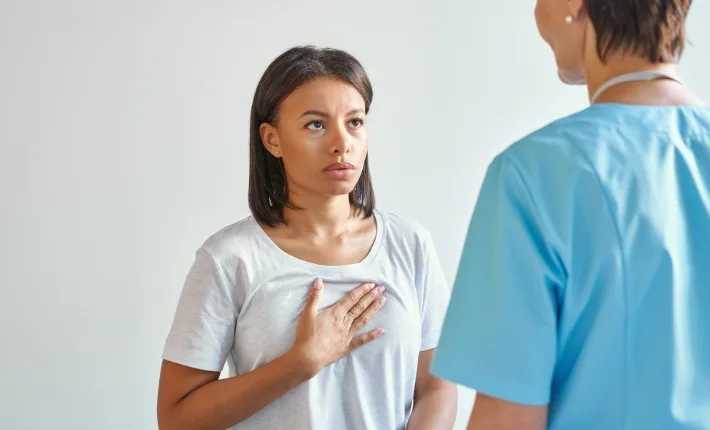

When To See A Doctor
Here are a few scenarios when you should consult with your doctor immediately:
1. Cyclic breast pain that hinders your everyday activities
2. The pattern of your cyclic breast pain changes
3. Growth of a lump in the breast or armpit
4. Breast pain that isn't related to your periods
5. Pain induced while breastfeeding (an indication of infection)
6. Symptoms of possible breast cancer - like changes in your breast or nipple's shape or size.
Cyclic breast pain before or after can be managed with home treatment and medications. In case, the intensity of your pain elevates or you notice something unusual, informing your doctor is a must.
Whereas for your menstrual needs, using the best sanitary pads or tampons is also a must! Try out ALWAYS Maxi Thick Pads which have unique anti-leakage barriers for maximum coverage. On the other hand, its extra absorbent core absorbs liquid quickly so that you don't feel a thing. For tampon users, the ALWAYS TAMPAX Cardboard Tampons are a great pick. Its protective skirt minimises the risk of leakage whereas the anti-slip applicator provides a smooth and easy insertion.
FAQs


What causes breast pain after menstruation?
While menstruating, hormones like estrogen keep fluctuating. They can rise in the other half of your cycle. This in turn can stimulate the breast tissues and cause breast pain after menstruation.
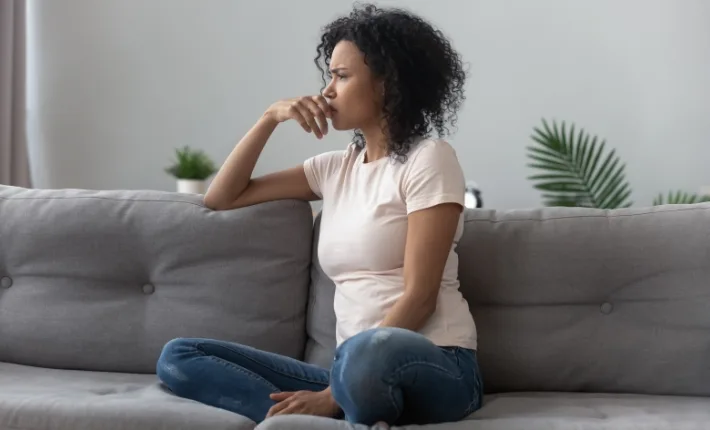

How to reduce breast pain before periods?
Here are a few ways to reduce breast pain before periods:
1. Wear well-fitted bras
2. Cut down on caffeine and salt
3. Take supplements like Vitamin E after consulting with your doctor
4. Use hot or cold press therapy


Is it normal for one of your breasts to hurt?
Typically, breasts shouldn't hurt. But before menstruation, there's breast pain experienced in both sides. So, if one only of your breasts hurt, it's best to consult with a doctor and get a better diagnosis.
Disclaimer
Please note the date of last review or update on all articles. No content on this site, regardless of date, should ever be used as a substitute for direct medical advice, diagnosis or treatment from your doctor or other qualified clinician. Always is committed to ensuring that all of our products meet rigorous safety standards; Always pads prioritize safety, protection and comfort of its consumers.




